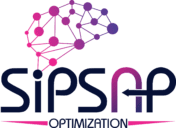Core business areas like finance and accounting are vital to the success of any organization. SAP, which stands for Systems, Applications, and Products in Data Processing, is a leading enterprise resource planning (ERP) solution that organizations worldwide rely on to streamline and optimize these essential functions. In this blog post, we will delve into how SAP enhances finance and accounting processes, strengthening the core business areas within an organization.
Understanding SAP’s Role in Finance and Accounting
SAP’s capabilities extend to various functional modules, each designed to cater to specific business processes. In the realm of finance and accounting, SAP plays a crucial role by providing modules that enable efficient management and control over financial operations.
Key SAP Modules for Finance and Accounting
SAP Financial Accounting (FI)
SAP Financial Accounting, often referred to as FI, is a core module that focuses on financial management within an organization. It handles financial transactions, general ledger accounting, accounts receivable, accounts payable, and more. FI provides real-time financial data, ensuring accuracy and transparency in financial reporting.
SAP Controlling (CO)
SAP Controlling, known as CO, complements FI by focusing on cost management and control. It includes components for cost center accounting, profitability analysis, and product costing, and budgeting. CO assists in decision-making by providing insights into cost structures and performance evaluation.
Streamlining Financial Operations with SAP
SAP’s modules in finance and accounting significantly contribute to streamlining operations within the finance department. Through automation and integration, SAP minimizes manual data entry, reduces errors, and enhances efficiency in financial processes. Real-time reporting and analytics empower organizations to make informed financial decisions promptly.
Case Studies: Real-life Applications of SAP in Finance and Accounting
Case Study 1: Core Business Areas—Improved Financial Reporting and Analysis
Case Study 2: Streamlined Accounts Payable and Receivable Processes
A medium-sized enterprise utilized SAP to streamline its accounts payable and receivable processes. The automation and integration provided by SAP resulted in faster invoice processing, reduced payment delays, and improved cash flow management. The company saw a notable increase in operational efficiency and vendor satisfaction.
Case Study 3: Effective Cost Management through SAP CO
A manufacturing firm, implemented SAP’s CO module to gain better control over their costs. By leveraging CO’s functionalities, they optimized their cost allocation, monitored project costs, and streamlined budgeting processes. This enabled the organization to achieve cost-efficiency and maximize profitability.
Customizing SAP for Finance and Accounting Needs
Every organization has unique financial requirements. SAP acknowledges this and allows customization of its modules to suit specific needs. Whether it’s adapting charts of accounts or defining specific financial workflows, SAP can be tailored to align with an organization’s financial processes seamlessly.
Best Practices for Implementing SAP in Finance and Accounting
Implementing SAP for finance and accounting involves careful planning, thorough training, and efficient change management. It’s essential to align the implementation with the organization’s strategic goals and ensure that all stakeholders are adequately trained to leverage SAP’s capabilities effectively.
Future Trends and Innovations in SAP for Finance and Accounting
SAP continuously evolves, embracing technological advancements. Future trends include integrating artificial intelligence and machine learning into financial processes for predictive analytics, fraud detection, and enhanced decision-making. These innovations will further elevate the role of SAP in finance and accounting functions.
Conclusion
SAP’s impact on finance and accounting, which are at the core of a business’s operations, cannot be overstated. Through modules like FI and CO, SAP empowers organizations to automate and optimize financial processes, providing real-time data and insights for informed decision-making. As SAP continues to evolve and embrace cutting-edge technologies, it is bound to revolutionize how businesses manage their core financial functions.
For any organization seeking to enhance its finance and accounting processes, diving into SAP’s core business areas is a promising and transformative step forward.
In this blog post, we explored how SAP, a leading ERP solution, enhances the core business areas of finance and accounting. We discussed key SAP modules, real-life case studies, and customization possibilities, best practices for implementation, and future trends, all focused on SAP Core Business Areas.



